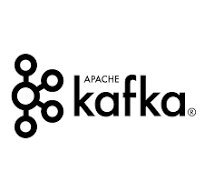Apache Kafka Vulnerability Allows Attackers to Escalate Privileges
A newly discovered vulnerability, CVE-2024-31141, in Apache Kafka Clients, could enable attackers to escalate their privileges, potentially gaining unauthorized access to sensitive filesystem data. This vulnerability, rated as moderate, affects multiple versions of Kafka Clients and poses a significant risk in environments where applications are exposed to untrusted users, like SaaS platforms. Organizations are advised to upgrade to version 3.8.0 or later to mitigate the risk.

Mitigating the Apache Kafka CVE-2024-31141 Vulnerability: What You Need to Know
A recently discovered vulnerability, CVE-2024-31141, has been found in Apache Kafka Clients, which could enable attackers to escalate their privileges and gain unauthorized access to critical data. The vulnerability, rated as moderate in severity, arises from improper privilege management in the way Kafka Clients handle external configuration providers (ConfigProviders). This issue could allow attackers to access sensitive filesystem data and environment variables, which could lead to data leaks or other security risks.
Vulnerability Overview
The vulnerability affects multiple versions of Apache Kafka Clients, with the risk being particularly high in environments where applications are exposed to untrusted users, such as in SaaS platforms. The flaw stems from the ability of certain Kafka ConfigProvider plugins to manipulate custom configurations, which, in turn, can be used to access filesystem and environment data. Specifically, the affected ConfigProvider implementations include:
- FileConfigProvider
- DirectoryConfigProvider
- EnvVarConfigProvider
These plugins have legitimate functionality to access and manipulate configuration data, but they also have the ability to read sensitive data from the filesystem or environment variables. If an untrusted user can specify Kafka Client configurations, they could exploit this flaw to gain access to arbitrary files and environment variables.
Versions Affected
The following versions of Apache Kafka Clients are affected by this vulnerability:
| Product | Affected Version |
| Apache Kafka Client | 2.3.0 through 3.5.2 |
| Apache Kafka Client | 3.6.0 through 3.6.2 |
| Apache Kafka Client | 3.7.0 through 3.7.1 |
This flaw is particularly concerning in services like Apache Kafka Connect, where attackers may exploit this vulnerability to escalate from REST API access to gaining full access to the underlying system's filesystem or environment variables. In environments such as SaaS products, where multiple users may interact with Kafka through APIs, attackers can leverage this vulnerability to access sensitive data stored on the system.
Risk and Impact
- Privilege Escalation: Attackers can escalate their access from a limited scope (e.g., API access) to gaining full control over the system’s files and environment variables.
- Data Exposure: Sensitive data, such as configuration files and environment variables, could be exposed to unauthorized parties, potentially leading to data breaches or system compromises.
- SaaS Vulnerability: In multi-user environments like SaaS platforms, where different users interact with Kafka through APIs, this vulnerability could be exploited to access or leak sensitive data.
Recommended Mitigation Actions
To mitigate this vulnerability, users of affected Kafka Clients should take the following actions:
-
Upgrade to Patched Versions:
- Upgrade to Apache Kafka Clients version 3.8.0 or later. This version includes fixes to address the privilege escalation issue.
-
Set System Property:
- Set the JVM system property
org.apache.kafka.automatic.config.providers=none. This will help to prevent the ConfigProviders from being used in untrusted environments.
- Set the JVM system property
-
Apply Restrictive Configurations for Kafka Connect:
- Users of Kafka Connect with ConfigProvider implementations listed in their worker configuration should add
allowlist.patternandallowed.pathsto restrict the scope of access to appropriate bounds. This will limit the potential damage in case of exploitation.
- Users of Kafka Connect with ConfigProvider implementations listed in their worker configuration should add
-
Restrict Access to Configuration Data:
- Limit access to Kafka Client configurations to trusted users only. Implement Role-Based Access Control (RBAC) to ensure only authorized users can modify Kafka configurations.
-
Do Not Set System Property in Trusted Environments:
- For environments where users are trusted with access to disk and environment variables, do not set the system property
org.apache.kafka.automatic.config.providers=noneas this may hinder legitimate functionality.
- For environments where users are trusted with access to disk and environment variables, do not set the system property
-
General Security Best Practices:
- Regularly update all systems, including Kafka, and ensure that security patches are applied promptly.
- Enable Multi-Factor Authentication (MFA) for any interfaces that allow access to sensitive systems.
- Monitor and Audit: Continuously monitor Kafka deployments for unusual activity and ensure that all access logs are reviewed.
This vulnerability highlights the critical importance of safeguarding configuration management systems and restricting access to sensitive resources in multi-user environments. By updating to the patched versions and implementing the recommended security measures, organizations can significantly reduce their risk of exploitation.
IUsers should take immediate action to ensure their Kafka Clients are up-to-date, implement strict access controls, and apply configuration restrictions to mitigate the risk of privilege escalation attacks. For organizations operating in trusted environments, careful attention should be given to the balance between security and functionality when applying the necessary mitigations.
You can read the full news and learn about other vulnerabilities on the official website at kafka.apache













